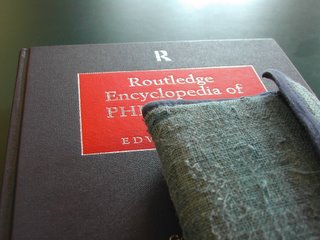
Let us assume modal realism. In particular, let us assume that when I say that I could have been a plumber instead of a philosopher, I say something true in virtue of there being a world in which someone relevantly similar to me (i.e. my counterpart) is a plumber. Thus, counterfactuals or modal claims like the one above work exactly in the same way as ordinary assertions just like this one, asserted by me, thirty minutes ago: 'I am a philosopher'. Just like the claim that I could have been a plumber, the truth of the claim that I am a philosopher depends on the way a world is. The latter depends on the way my world is, the former on the way my counterpart's world is.
Now, my worry is the following. Accepting this particular metaphysics commits us to the existence of causally isolated although concrete and real multiple worlds. Thus, what is called 'possible world' is no less an object than, say, me. There is an apparently uncontroversial assumption within contemporary metaphysics according to which for every single object there is a corresponding essence, or nature, which amounts to what it is to be that object. However, regardless of its nature as an object, it makes no sense to talk about the essence, or nature, of a possible world. Analogously, it makes no sense to distinguish between the necessary and contingent properties of a possible world. Even more, I will argue that it makes no sense to talk about the possible ways in which a world can be.
For the sake of the argument, let us assume that it is essential to our world that certain laws of nature hold in it. Now, according to our particular modal realist metaphysics what this means is that it is in the nature of this world that certain laws of nature hold, and, thus, there is no possible world in which this world has a counterpart (or a relevant one) in which certain laws of nature don't hold. But what does it mean that a world exists within a world?
If, on the one hand, we admit that a world has a counterpart then we have to admit that the former is itself another object within a more embracing world which itself constitutes part of an all-embracing world, which... ad infinitum. Even more, we would have to admit that causally isolated objects are still causally connected as parts of a more embracing world (and this sounds contradictory).

If, on the other hand, we admit that a world is itself a maximally inclusive sum, such that it is not itself a proper part of a different world - which clearly implies that it does not include a possible world as a proper part of it - then it seems that the distinction between essential and accidental properties disappears. For any property of a possible world will be true of that world in just one possible world, namely, itself. Essential properties of worlds cannot be understood as properties of the world such that the world could not have existed without having such property, as opposed to properties such that the world could have existed without them. And this is so because other ways in which this world exists are just other worlds and not counterparts of it (unless we accept an unconceivable openend of metaphysical levels). Therefore, it makes no sense to distinguish between essential and accidental properties of worlds, which in turn is tantamount to say that all properties are essential properties. This is the first uneasiness of possible worlds.
Another more controversial consequence is that there is no such thing as possibilities of possible worlds (unlike the possibilities of any other object). Just like we cannot make sense of the essence of a world, we cannot make sense of the possibilites of a possible world, for exactly the same reasons: ways a world might be are just other worlds which cannot be themselves counterparts of this world. If this is so, there is no sense in the distinction between actual and possible properties of a world, they are all actual properties; and so on and so forth. That is, the same holds for the distinction between necessary and contingent properties of a world. All of a world's properties are necessary.
Thus, a world is what it is and it cannot be otherwise. All its properties are essential properties, and all its properties are necessary properties. The third bad consequence of all this metaphysical framework follows smoothly: determinism is true. If a world cannot be otherwise, then it is must be the way it is. Moral: whenever you think you did wrong, stop worrying. That is just the way the world is, and it couldn't have been otherwise.
Once we consider that worlds are just maximally inclusive mereological sums of objects, we get to the last and worse consequence: just like the sum, all objects (all individuals) in a world have their properties essentially, they are all necessary properties and also actual. In particular the property of being a philosopher is as essential, necessary and actual of me as the property of not being a plumber. It makes no sense, then, to talk about possibilia, counterfactuals and else. And the whole motivation for using possible worlds disappears.
This is the problem of possible worlds.
[Coming soon: we can't go home]